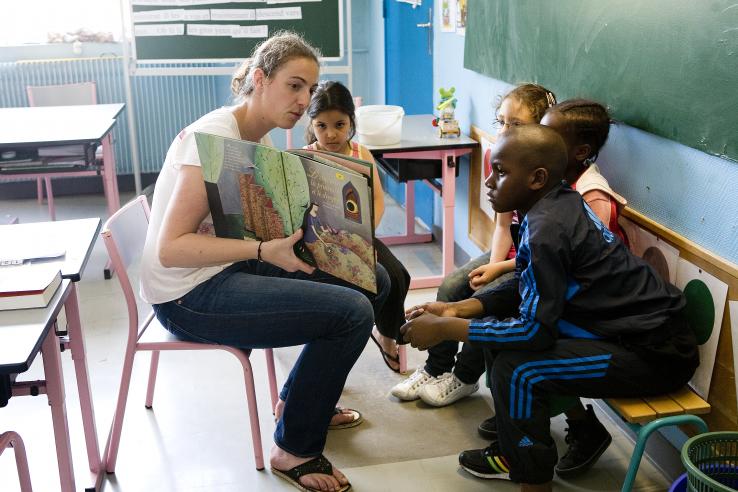Announcing new research partnerships to promote social inclusion for migrants in Europe

J-PAL Europe, together with Community Jameel and Porticus, announce new research partnerships to promote social inclusion for migrants and refugees in Europe
The Abdul Latif Jameel Poverty Action Lab (J-PAL), the global research network whose co-founders Esther Duflo and Abhijit Banerjee and long-time colleague Michael Kremer were awarded the 2019 Nobel Prize in Economics, has announced new partnerships in Finland, Sweden and Turkey as part of a Europe-wide initiative to strengthen the social inclusion of migrants and refugees. J-PAL Europe affiliated researchers will work with Swedish NGO Kompis Sverige, the Turkish Ministry of Education, and Finnish NGO Walter to apply Nobel-winning methods to rigorously evaluate a diverse range of projects designed to integrate migrants into society. These range from buddy matching between newly-arrived migrants and locals, to interventions in the classroom for Syrian refugees. The research will generate new evidence for what works, informing how governments and other actors tackle pressing questions related to migrants and their social inclusion.
These research awards are being made as part of the European Social Inclusion Initiative (ESII), a multi-year research and policy outreach initiative launched by J-PAL Europe, which is based at the Paris School of Economics, with the support of and in collaboration with Community Jameel and Porticus, two global philanthropies.
“We are very pleased to support this research into three innovative programs in different parts of Europe,'' said Luc Behaghel, ESII Co-Chair and professor at the Paris School of Economics. “These evaluations will provide insights on effective programming for migrant inclusion not only for these three implementation partners, but for governments and civil society across Europe and beyond."
Researchers will work with the three organizations to design and launch randomized evaluations of these interventions. In October, the Nobel Memorial Prize in Economic Sciences was awarded to J-PAL co-founders Abhijit Banerjee and Esther Duflo, and J-PAL affiliate Michael Kremer, in recognition of their work in advancing the use of this methodology in alleviating global poverty.
In Sweden, Kompis Sverige, which has been operating since 2013, works to promote a better social and economic integration of recent migrants by matching them with established Swedes and creating local social ties through repeated social interaction. Through the evaluation, researchers will measure the impact of these interactions on migrants’ language skills, social connections, as well as their sense of belonging.
In Turkey, the Ministry of Education has developed a number of policies to facilitate the integration of Syrian refugee children into the Turkish education system since 2016, including a unique curriculum delivered by teachers, which is designed to foster “perspective-taking” among host and Syrian students in schools. Funding from ESII will allow researchers to evaluate the program’s effects in the long term.
In Finland, researchers will study a series of innovative interventions in elementary schools in partnership with Walter, a Finnish NGO managed by present or former Finnish professional athletes and artists with diverse ethnic backgrounds. The interventions aim at promoting intercultural interactions and reducing discrimination in the classroom.
“This research should yield unique and valuable insights into how to promote social inclusion in three quite different contexts,'' said Anna Schrimpf, J-PAL Europe Executive Director. “Our hope is that research undertaken as part of the European Social Inclusion Initiative will contribute to a broader evidence base for social inclusion policy in European countries."
To prepare for the launch of ESII in March 2019, J-PAL Europe reviewed over 140 studies on three key levers for social inclusion—education, employment, and migrant integration programs—to help understand insights from existing research and to highlight the major gaps in what remains an understudied field. Following the launch, the J-PAL Europe team engaged in hundreds of conversations with innovative organizations implementing programs to foster migrants’ inclusion across Europe. Some 30 of these organizations attended an evaluation incubation training in Paris in May, designed to help them better understand how to launch a randomized evaluation.
J-PAL Europe will issue a second call for proposals under the initiative in spring 2020.
To stay informed about J-PAL’s work on social inclusion in Europe, visit povertyactionlab.org/esii.